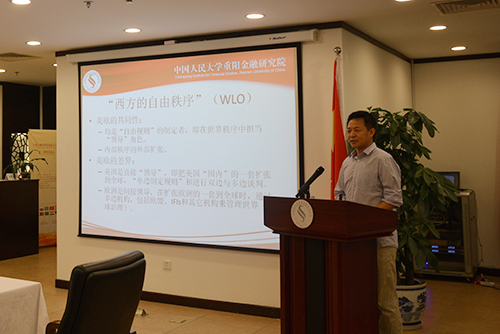Will China revive the G20?
china.org.cn / chinagate.cn by Wu Jin, August 22, 2014 Adjust font size:
As the G20 Summit is gradually losing its charm for most developed countries, China is expected to shoulder accountability by hosting a 2016 summit to revive its influence, said Pang Zhongying, professor of International Politics at the International Relations School of Renmin University in Beijing.
|
 |
|
China is expected to host the G20 Summit in 2016 to revive the organization’s role as an intermediary among global powers, said Pang Zhongying, professor of International Politics from Renmin University. [Photo/China.org.cn] |
Pang made his remark on Wednesday at the "Reconsidering the popularity of the G20" symposium at the Chongyang Institute for Financial Studies of Renmin University.
"The G20 has contributed greatly to the ‘Mutual Governance' theory in international affairs, including environmental protection and armament," Pang said.
However, since the summits in Mexico and Russia in 2012 and 2013, the G20's momentum has been declining, sending out a dangerous signal regarding the maintenance of the current world order, said Pang.
"Experts expected the 21st century would be another peaceful century following the first one, which lasted from 1815 to 1914," said Pang. "But to maintain the peaceful process we need intermediary organizations such as the G20."
The G20 was established two years after the Asian Financial Crisis in 1997 to tackle global economic and financial problems. Today, however, the summit provides a platform for issues which extend far beyond economic cooperation. The summit also influences global affairs, including the prevention of the escalation of political disputes among countries, security issues and environmental protection.
Yet its role is still obscure, as developed countries have seemed less enthusiastic to negotiate with emerging economies since their recovery from the sweeping global financial turmoil of the Subprime Mortgage Crisis in 2007.
"It hardly reversed the declining trend of G20 when the financial crisis ceased," said Liu Zhiqin, the former chief representative of Zurich Cantonal Bank in Beijing.
But Pang warned that without the G20, which serves as a well-developed international forum for negotiation among the different powers, the world could possibly fall into war again.

